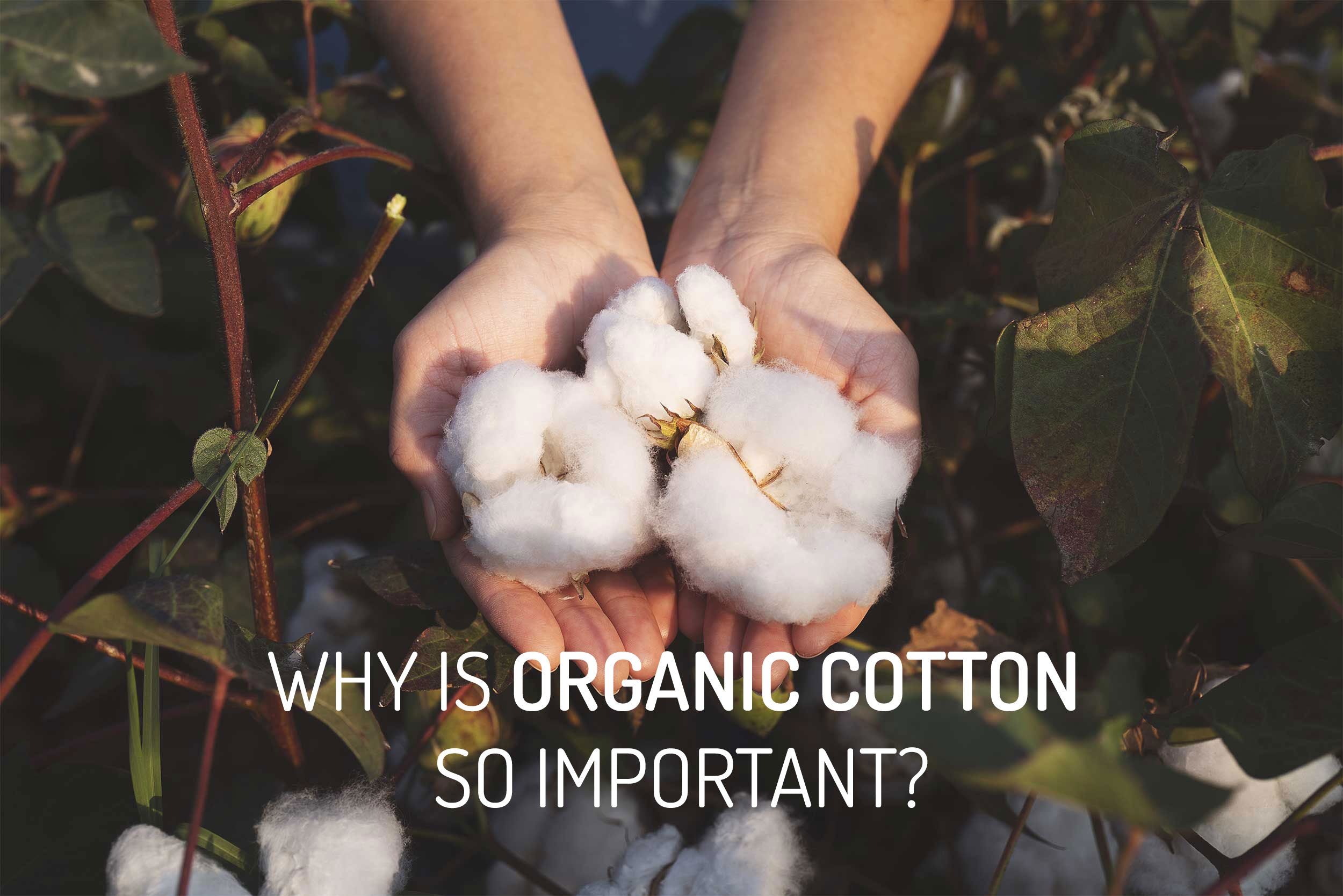At Bears for Humanity, we are proud to offer children’s plushies made with 100% Global Organic Textile Standard (GOTS) certified organic cotton. Common household items and trusted products have been proven to contain cancer-causing chemicals. To protect their children from harsh toxins, more parents are choosing to go organic for products like baby food and kids toys.
Finding quality organic products is a mission of its own as there are many different ratings, certifications, and “levels” of organic. Our bears are made with the best of the best, 100% GOTS certified organic cotton. Today we’ll share what this rating means for your child and the Earth.
How is Conventional, GMO Cotton Produced?
In 2018, 94% of the cotton in the United States was grown using GMO cotton seeds. The seeds are genetically modified to contain a protein toxic to pests like bollworms. This is intended to fortify the cotton plants against pests, but because the insects are able to quickly adapt to the insecticidal proteins in the cotton, the plants must also withstand heavy doses of chemical pesticides and fertilizers.
Proponents of GMO cotton claim that the modified plants create a larger yield while requiring less water. In reality, the toxic chemicals coating the plants damage the soil composition, reducing its ability to hold water and increasing water waste. The same chemicals that damage the soil also contaminate the land and water sources near the crop, affecting the environment as a whole.
Organic Cotton is Safe, Clean, and Sustainable

Organic cotton is grown the way nature intended. Farmers rely on practices like crop rotation and natural pesticides and fertilizers to protect soil and maintain a natural balance in the environment. Because the soil is healthy, it is able to absorb and hold on to the water, saving precious drops for times of drought. Conventional cotton farming uses large amounts of water for production and the pesticides used contaminate nearby water sources. Organic cotton farming instead saves water by protecting the soil and eliminates the risk of toxic agents being released into the land and water.
Setting an Organic Standard
The fashion and textile industry has been repeatedly chastised for the environmental contamination it produces, leaving consumers seeking cleaner and greener fabric products. This has led big-name fashion brands to rework their marketing to appeal to the sustainable crowd, instead of actually taking the necessary steps to create a sustainable product. This practice is known as greenwashing, in which companies cover their product with labels like “sustainable” or “eco-friendly” while these labels carry no real certification or data to back them up.
GOTS Certified Organic Cotton
The Global Organic Textile Standard (GOTS) oversees the quality assurance and related labeling of organic fibers produced all over the world. Organic farming practices ensure that these fibers come from farms committed to maintaining or enhancing the environment instead of putting profits over environmental protection. The GOTS mandates that all stages of the textile supply chain are checked by a third party to ensure strict ecological and social criteria are met.
GOTS places different labels on cotton products depending on what percentage of fibers in the overall product are made in a completely organic manner according to the principles of organic agriculture. Textile products labeled with GOTS must have a minimum of 70% certified organic fibers, and a product labeled as grade organic must have a minimum of 95% certified organic fibers.

Bears for Humanity goes above and beyond to ensure the cotton used for our bears is 100% GOTS certified organic cotton. Before being released to the public, our plushies undergo a third-party chemical composition inspection to ensure zero contamination occurred at any step of production. Because of the extra time and effort put into making our bears as safe and hypoallergenic as possible, they are approved for children to use ages 0 and up.
The Work, Time, and Dedication Behind Organic Cotton
To create an entirely organic fiber product, a lot of time and attention to detail is necessary to process and prepare the natural fibers while avoiding any type of contamination. Organic fiber materials like cotton require much more patience and skill to work with compared to synthetic fabrics, like polyester, which can be easily manipulated. In the case of our plush toys, this means working with small, artisanal workshops for each step of the process of creating our stuffed animals. These workshops meet ethical manufacturing standards and protect workers from handling toxic chemicals or working at abusive “pay-per-piece” rates that are common in the conventional textile industry.
At the end of production, each of our bears is inspected by hand to assure quality control. To keep our certified GOTS organic cotton bears as pure as possible, we use 100% natural herbal dyes that can be cuddled by even the most sensitive child. Our plushies must pass chemical composition tests to ensure that no traces of chemical agents or hard metals are present. Because our bears are made with cotton and other natural materials, they pass flame resistance tests with no flame retardants.
Sustainable for the Earth and Safe for People
Farmland has changed the face of our planet. Today, nearly half of the Earth’s habitable surface is used for agricultural purposes. In some places the damaging effects of over-farming or farming-related contamination are irreversible. Farmers that choose to produce their crops according to organic methods are fighting to conserve our natural spaces while offering a safer product free of chemicals.
Conventionally grown cotton is one of the dirtiest crops in existence due to the massive amounts of toxic pesticides used. Making the extra effort to seek out GOTS certified organic products helps reduce the risk of chemical agents in your home and around your family. It also supports traditional, Earth-minded farming practices that can be a vital part in conserving our environment.




